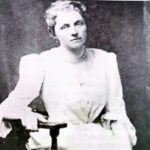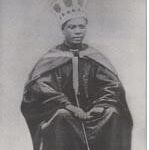OTU, AHIAKWA
- 3 Min Read
Ahiakwa Otu (16? – Circa 1711) was a broker for the Dutch in Accra, who later became the Accra representative for the powerful state of Akwamu, which was then dominant in the region. “Otu” was also written variously by his contemporaries as Otho or Otto, and a modern scholar, Ivor Wilks, has also identified him with “Peter Pasop”.
He was a brother of the Akwamu Nifahene (chief of the right-wing division of the army). Pawned (pledged into semi-servitude as security for a debt) by his family to the Dutch in Accra at a very early age, he became a bondsman in the service of the Dutch West India Company in the mid-17th century. Exhibiting talent and honesty, he rose rapidly from the rank of trading assistant to chief broker for the Dutch, who employed him on missions into the interior. His duties were soliciting trade, keeping open the trade paths from the interior, and conducting parties of merchants safely to the forts. His high connection with the Akwamu royal house, then at the height of its power, made him an ideal emissary to the courts of the African rulers, especially the Akwamuhene (ruler of Akwamu).
In 1693 he was sent on a mission to persuade Hasua, the Akwamuhene not to handover Christiansborg Castle, which Asameni, on behalf of Akwamu, had captured a few months earlier, to any nation other than the Danish or the Dutch. On another mission in 1703, he concluded an important trade agreement with the Akwamu for the Dutch.
Match earlier, the Akwamu had recognised his importance and influence, and with their conquest of Accra in 1681, he had been made the Akwamu resident representative, or governor, in Dutch Accra, where he founded the Otublohum quarter – “blohum” being a Ga corruption of the Twi word meaning “street” – which still bears his name.
Because of the commercial importance of Accra, a principal of succession to the “residency” of Otublohum, as well as to the office of broker to the Dutch West India Company was established. This occurred as a result of a series of patrilineal cross-cousin marriages between Otu’s family and the Akwamu royal house. Thus, when Otu died in about 1711, he was succeeded by his son Amu, who was also the son of the sister of the Akwamuhene. Amu, after his death in 1733 was succeeded by his son Dako, who was the son of Otu’s niece. Though Dako continued as the broker of the Dutch company, he was not, however, the Akwamu representative, as Akwamu rule over Accra had ended in 1730.
M. A. KWAMENA-POH




